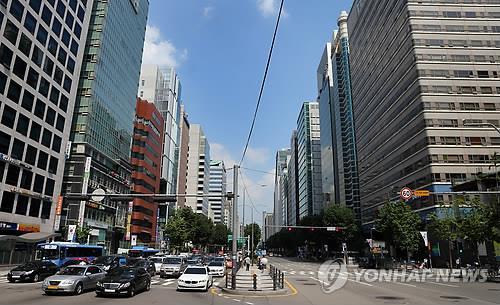South Korea failed to put its stock market back on MSCI Inc.'s review list of developed market index candidates due to a lack of financial reforms required by the widely followed global index provider, the financial regulator said Wednesday.
MSCI, or Morgan Stanley Capital International, cited the absence of an around-the-clock market to exchange Korean won with other currencies and delays in Seoul's packages of financial reforms that will take effect after 2017, as some of the main reasons, the Financial Services Commission said in a statement.

MSCI has asked Korea to open a market where foreigners can exchange the Korean currency for other currencies or vice versa around the clock. But the government has balked at the request as the 24-hour exchange market could increase volatility of the won.
"While keeping the foreign-exchange market stable, we will continue to strive to improve convenience for foreigners to convert the won into other currencies or vice versa," FSC Vice Chairman Jeong Eun-bo said in a meeting with financial officials.
"As Korea is a small open economy and its economy is heavily dependent on exports, market stability is quite important. Given this, it is hard for Seoul to allow the 24-hour market in the short term," he said.
In other efforts to remove inconveniences for offshore investors, the government will adopt the "omnibus account system" starting from 2017 and extend the stock and foreign-exchange trading hours by 30 minutes from August, the FSC said.
The omnibus account system is regarded as an efficient way to gather customer trading activities into a single account, which will help offshore investors cut costs. Investors called for an extension of stock trading hours here to effectively manage their portfolios, citing shorter Korea's stock trading hours compared to Germany and France with eight and a half hours, and eight hours in Singapore.
From 2008 and 2014, Korea advanced to the review list stage each year but couldn't obtain development market status. The failures were due to the country's inability to satisfy a series of requirements made by MSCI.
Korea has been on the list of emerging market indices since 2009.
On the same day, MSCI didn't add China's local-currency shares, known as A shares, to its benchmark emerging markets index, in a fresh blow to China which has stepped up efforts to joininternational markets.
An inclusion of China's A shares into the MSCI Emerging Markets Index could have lured tens of billions of dollars into its stock markets. If China were added to the benchmark index, the Korean stock market would be expected to go volatile as foreigners may move some of their assets to China. (Yonhap)







